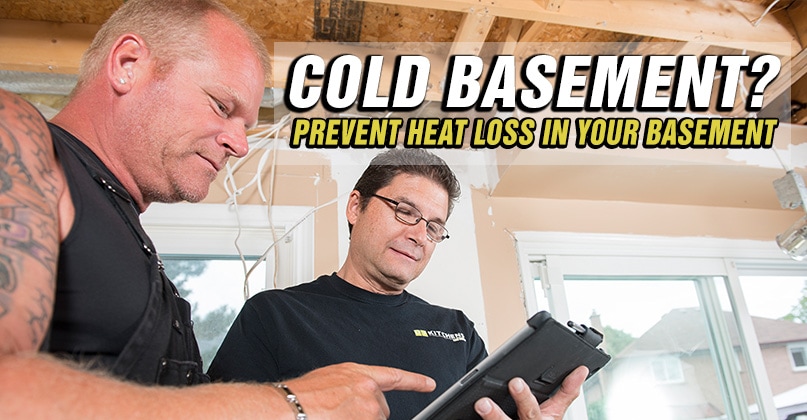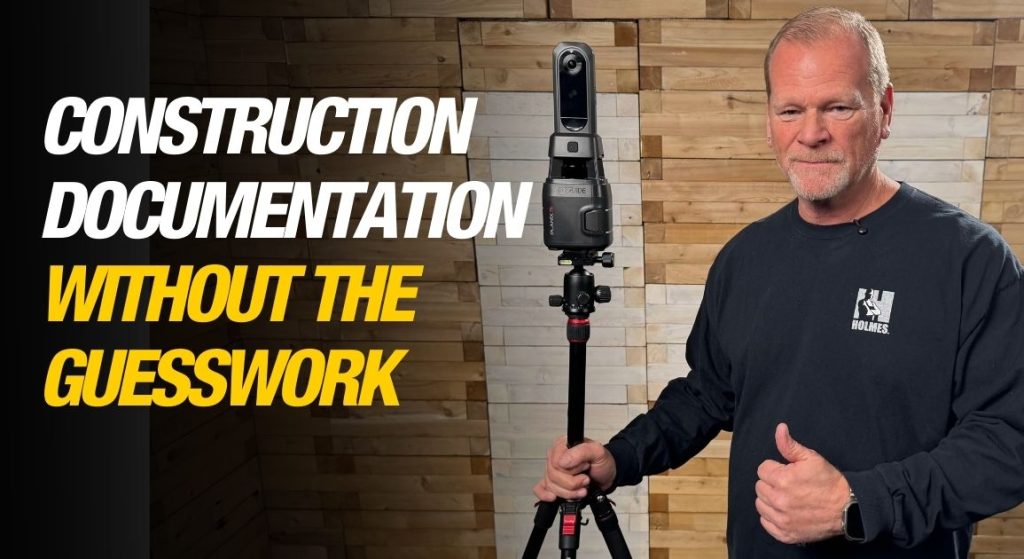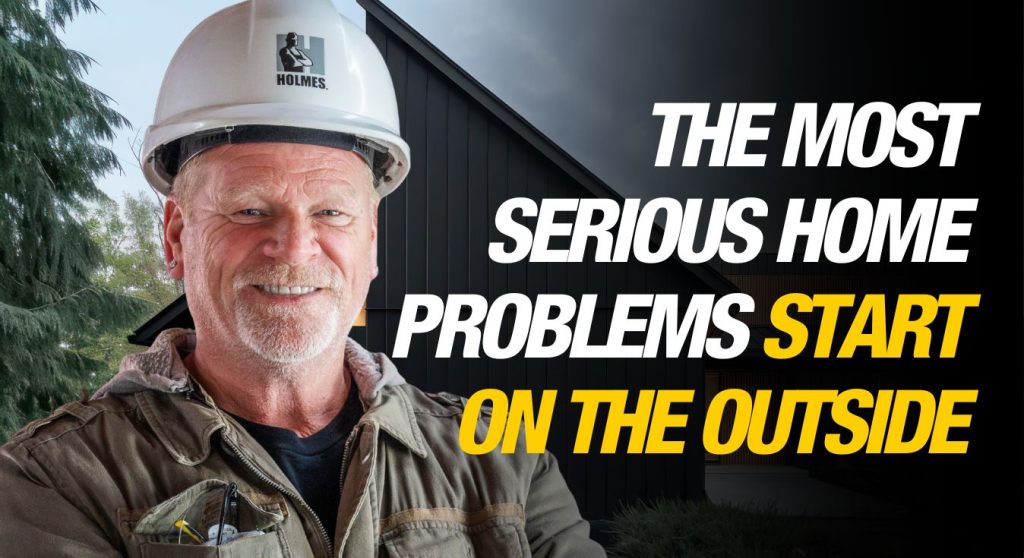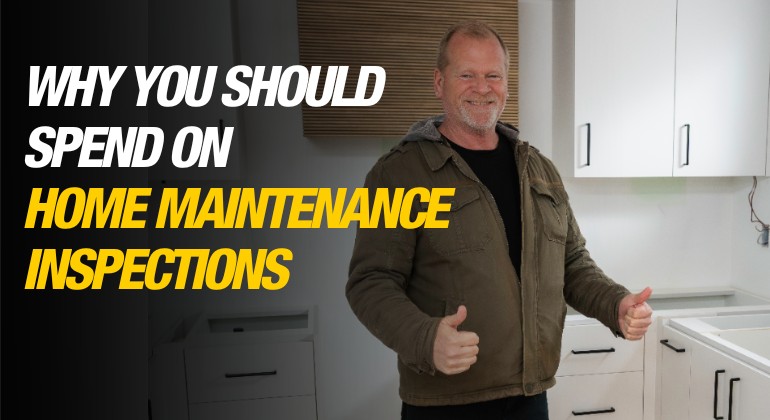I love exploring new technology—especially when it genuinely improves how we work in construction—and I recently came across one that truly impressed me, iGUIDE by Planitar Inc. In my...

Preventing Heat Loss In Your Basement
By Mike Holmes
Mike’s Advice / Home Renovation
Sunday, July 23rd, 2023 @ 11:24am
Insulating To Prevent Heat Loss In Your Basement
Where do you see most of the heat loss in your home? For most people, it’s at the top and the bottom: their attics and unfinished basements. Unfinished basements can be a major source for heat loss in your home. Basements tend to be responsible for around 20% of your home’s total heat loss. So how do you prevent heat loss in your basement? The answer is insulation.
A finished basement is an investment that can add a lot of value to your home. However, you have to make sure that you’ve insulated properly and protected against moisture. The last thing you want is to spend thousands on a basement renovation, only to have to tear it up and start over.
A lot of basements have little or no insulation. If you are doing other work in your basement, such as waterproofing or repairs, this is a great time to add insulation to prevent heat loss in your basement.
Basement Insulation – What You Should Know
If you are insulating your basement from the inside, your options could include:
- batt or blanket,
- glass fibre loose fill,
- polyurethane spray and
- rigid plastic board
When we talk about R-Value and insulation it refers to a material’s ability to resist heat flow. With a higher R-Value, you’ll have more insulating power.
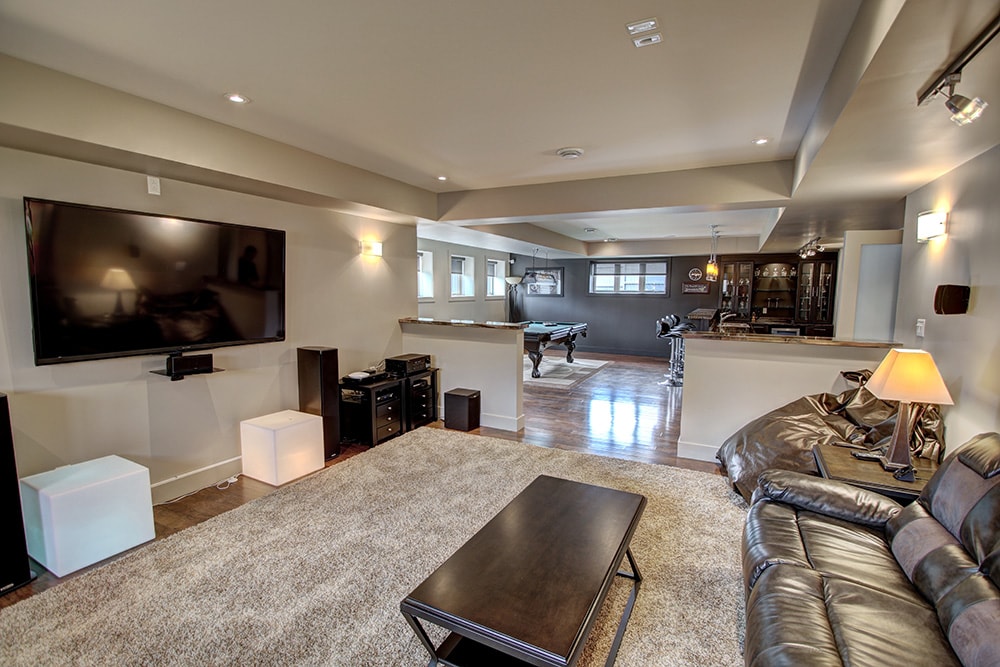
Holmes Approved Homes Builder: Gibraltar Fine Homes
Types Of Insulation For Your Basement – Interior and Exterior
You can insulate your basement from outside or inside.
Preventing Heat Loss with Exterior Insulation
Insulating your basement from the outside prevents heat loss that transmits through building materials, such as the framing in your walls. Good exterior wall insulation, especially around your doors and windows, helps keep your home at a comfortable temperature.
Installing a continuous layer of exterior insulation and properly sealing the seams can drastically cut down on air infiltration and drafts. Cutting down on air infiltration can significantly improve the effective R value of insulation materials.

Hasler Homes Exterior Insulation in a home in North Vancouver. Hasler Homes is a Holmes Approved Homes builder.
Insulating Your Basement From Inside
Rigid Foam Insulation
Rigid panel insulation is made from fibrous material like fibreglass, or plastic foam. This foam can be ordered shiplapped, which means it fits together snugly, and won’t leave a gap between pieces.
To use this type of insulation, your basement wall should be even and vertical (i.e. poured concrete or concrete block) as the board material is pretty rigid.
Spray Foam To Prevent Heat Loss
For a basement, you will want to select a foam insulation that is closed cell instead of an open cell insulation, and that’s because closed cell spray foam stops air and moisture. It’s not the cheapest option, but it will provide you a lot of R-Value for your space. Applied directly to the walls, spray foam provides even protection. Spray foam should be installed by professionals – it’s not a job for DIY-ers.
Closed cell spray foam can also help control dampness on basement walls.

Holmes Approved Homes Builder: Hasler Homes Ltd.
Batt Insulation
Batt insulation can provide great insulating power – when it’s installed correctly. Batt insulation holds a lot of air that actually adds to the insulating power of the material, meaning that if it’s jammed into a space, you could actually lose R-Value.
RELATED: Finishing your basement? Read this first!
Creating a Thermal Break
People often ask me about installing a vapour barrier in your basement – but before you add anything, you want to know exactly what your insulation can do for you. Code varies by province, so always check in before making changes. For me, if I’m using rigid foam board thicker than 1.5”, I don’t want to use a vapour barrier. Properly installing rigid board will create a thermal break preventing the flow of thermal energy. This stops the hot air from meeting the cold, which would cause a build up of condensation.

Holmes Approved Homes Builder: Rinaldi Homes
R-Value In Your Basement
When we talk about R-Value and insulation it refers to a material’s ability to resist heat flow. With a higher R-Value, you’ll have more insulating power.
Different areas of the house have different requirements when it comes to how much insulation you need. For example, in your attic, you will want to go for a high R-Value, I like to aim for an R-60, but in a basement you will need less insulation. Code varies by province, so always consult your local building codes before you make any decision.
RELATED: ABCs OF CONSTRUCTION-UNDERSTANDING BUILDING TERMS
Tips on Renovating Your Basement
Putting in the proper insulation is only part of the process when it comes to protecting your basement. Always start by protecting your home from the outside in. Take a look at your foundation first – you don’t want to fix up the inside only to have your work undone because the bones of your home need work. Also look around for doors and windows to see if there’s any drafts coming in.
Protect The Framing
When finishing your basement, consider using products that will protect the frame of the basement as well. There are coatings for lumber that you can use that are fire and mildew resistant. If you’re spending the time and money to finish and insulate your basement, it makes sense to protect your investment from unforeseen damage.
RELATED: How To Find Air Leaks In Your House
Budgeting For Basement Remodelling
Your budget may dictate the scope of your project. A basement is a great investment when it comes to added space and value in your home, but if you can’t afford the cost of redoing the whole space at once, start with proper insulation and moisture proofing. Once the bones are taken care of, you can save up to build that perfect, playroom, den, or man cave. Don’t spend money on the finish, if you don’t know what’s going on behind your walls.
Here is a guide from Natural Resources Canada on Basement Insulation.
Keep Water Out
Look for signs of moisture in your basement. Check for cracks on the walls or on the floor. If you find any large cracks or signs of moisture, you need to address that first. Here is a guide on leaky basements.
A basement renovation done right can add value to your home, as well as provide more livable space. If done right, a basement remodel is an excellent idea.
READ NEXT: 5 Common Mistakes I See In Basement Renovations
What To Do If Your Basement Floods
